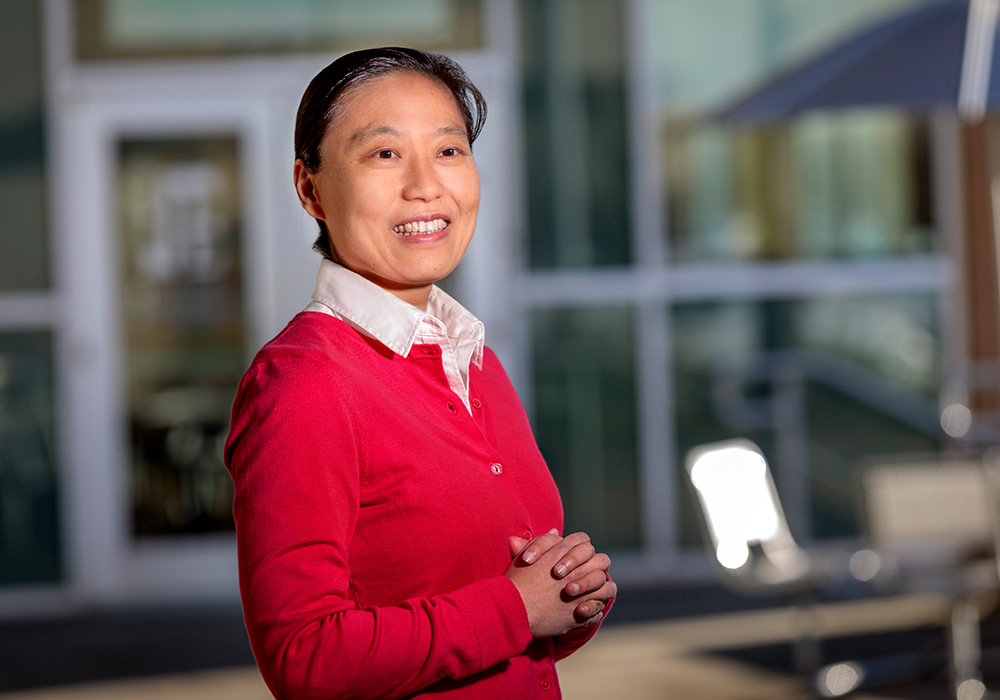The complex data sets and computations inherent in Jiajia Zhang’s work as a biostatistician are mind boggling to most people. But the practical applications of Zhang’s research are readily apparent, touching on cancer survival, HIV treatment and prevention and COVID-19 management.
Zhang, who joined the Arnold School of Public Health faculty in 2007, has forged an international reputation for her work in those areas and for her collaborations with researchers at the university and beyond. She serves as division director of biostatistics and a core leader for the university’s Big Data Health Science Center. Zhang has recorded nearly 200 publications in peer-reviewed journals and has been continuously funded as a principal investigator or co-investigator by the National Institutes of Health.
Zhang’s capabilities as a biostatistician are in high demand, serving as a co-investigator on 30 grants across the university, as the core statistician on three large research grants focused on HIV treatment and COVID-19 surveillance and morbidity/mortality and as MPI on the university’s Big Data Health Science Training Program.
“Jiajia is pioneering efforts to establish the university as a national leader in big data analytics and building collaborations across disciplines to expand research opportunities.
“She has assisted multiple faculty in advancing their research projects, merged complex datasets from various sources and organized multiple workshops and conferences that have brought together investigators from both within and outside the university,” says Susan Steck, an epidemiology professor at South Carolina. “Jiajia is pioneering efforts to establish the university as a national leader in big data analytics and building collaborations across disciplines to expand research opportunities.
“She is using cutting-edge methodologies such as machine learning and artificial intelligence to improve our understanding of infectious diseases, which is timely and of critical importance during the current COVID-19 pandemic.”
While Zhang’s data-crunching expertise is invaluable to other researchers, she is also trying to develop more user-friendly statistical software programs that would benefit everyone.
“It is a challenge for researchers in other areas to apply advanced statistical models to their own fields to address real-world problems due to the complexity of advanced programming methods,” Zhang says. “In addition to the methodology development, I have developed seven statistical packages in R, a free software environment for statistical computing and graphics and widely used in many research areas such as public health.”
“Through our interactions I have had the opportunity to witness firsthand what a skilled, committed and talented leader she is,” says Anthony Alberg, a professor and chair of the Department of Epidemiology and Biostatistics. “Dr. Zhang’s ability to analyze a problem and come up with solutions is among the very best I have ever seen, and she has been a difference maker for the department and school in this leadership role.”
